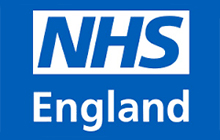About the Care and Treatment Reviews programme
Care and Treatment Reviews (CTRs) are for children and adults with a learning disability, autism or both. CTRs were developed as part of NHS England’s commitment to improving the care of people with learning disabilities autism or both. (Please note, for children and young people, the reviews are called “Care, Education and Treatment Reviews” or CTRs).
The ‘Care and Treatment Review: Policy and Guidance’ was first published in October 2015. It has been refreshed and improved in March 2017 and improved following a period of gathering feedback from people who have been involved in delivering or receiving reviews.
At its heart, a Care and Treatment Review is based on the following important principles:
- Person centred and family centred
- Evidence based
- Rights led
- Seeing the whole person
- Open, independent and challenging
- Nothing about us without us
- Action focused
- Life in the Community
This elearning programme helps everyone involved in Care and Treatment Reviews understand their role, and what happens at a review. It shows what a ‘good’ review looks like and explains how the review panel might offer a challenge to services to think differently about the care and support to the person that enables them to remain in their home and their community.
The reviews always ask:
- Is the person safe?
- Are they getting good care and treatment?
- What are their plans for the future?
- Can care and treatment happen in their own home and their own community?
This elearning programme is for commissioners, expert advisors – both clinical and experts by experience and health and social care staff.
More information
As part of the Transforming Care Programme, the Care and Treatment Review Policy was first published in October 2015, with a refreshed policy being published in March 2017.
Following the shocking abuse seen at Winterbourne View, a hospital for people with learning disabilities and autism, in 2011. People with learning disabilities, family carers, health and social care organisations came together to form the Transforming Care programme.
The Transforming Care programme aims to improve the lives of children, young people and adults with a learning disability and/or autism who display behaviours that challenge, including those with a mental health condition.
The programme has three key aims:
- To improve quality of care for people with a learning disability and/or autism
- To improve quality of life for people with a learning disability and/or autism
- To enhance community ability and reducing the number of people going into hospital inappropriately and staying there too long.
“Building The Right Support” and “The National Service Model” were also published by NHS England and its partners in October 2015. The Service Model states that:
“Children, young people and adults with a learning disability and/or autism who display behaviour that challenges, including those with a mental health condition have the right to the same opportunities as anyone else to live satisfying and valued lives and, to be treated with the same dignity and respect. They should have a home within their community, be able to develop and maintain relationships and get the support they need to live a healthy, safe and fulfilling life.”
Care and Treatment Reviews are different from other reviews of peoples care. They are about making sure services put children and adults at the centre of their care. They are independent from the person’s day to day care, and the review panel is made up of the commissioner and two independent expert advisors – both clinical and experts by experience.
Care and Treatment Reviews were introduced to help people in hospital, to prevent unnecessary admissions into hospital and where people do need to go into hospital to support there being clearly specified intended treatment outcomes and a discharge plan.
Please see the following website for information about Care and Treatment Reviews: www.england.nhs.uk/learningdisabilities
Project team

Anne Webster
Clinical Lead, NHS England
Irma Mullins
Project Lead on behalf of NHS England
Neha Baj
Senior Project Manager, HEE elearning for healthcare
Andi Blackmore
Project Manager, HEE elearning for healthcare
Karen Walker
Learning Designer, HEE elearning for healthcare
A small group of people got together who had lots of experience in supporting children and adults with learning disabilities, or who had experience of hospital assessment services themselves and knew about the Care and Treatment Reviews. They got feedback from a wider group of people with learning disabilities, people with autism, family members, health and social care staff, commissioners, experts by experience and clinical advisers. They told us what they wanted to know more about. The group worked together to make the elearning programme. People involved are:
Working group

Carl Shaw
Learning Disability Adviser, NHS England
Ben Briggs
Clinical Associate, NHS England
Tim Devanney
Workforce Specialist, Health Education England
Siobhan Gorry
Strategic Case Manager Children and Young People, NHS England
Ted Goodman
Expert by Experience and Retired Social Worker
Maggie Graham
Development Manager, NHS England
Irma Mullins
Project Lead, on behalf of NHS England
How to access
Available to all
The Care and Treatment Reviews programme is freely available to access here.
Please note your progress and completion of sessions will not be recorded and you will not be able to generate a record of completion. If you require evidence of learning, please register and then log in to access this programme on the elfh Hub.
If you already have an account with elfh, then you can enrol on to the Care and Treatment Reviews programme by logging in to the elfh Hub, selecting My Account > Enrolment and selecting the programme. You can then access the programme immediately in the My elearning section.
To view the Care and Treatment Reviews programme, select the View button below. If you already have an account with elfh, you will also be able to login and enrol on the programme from the View button.
NHS healthcare staff in England
The Care and Treatment Reviews programme is also available to NHS healthcare staff via the Electronic Staff Record (ESR). Accessing this elearning via ESR means that your completions will transfer with you throughout your NHS career.
Further details are available here.
Not an NHS organisation?
If you are not an NHS health or care organisation and therefore do not qualify for free access elfh Hub, you may be able to access the service by creating an OpenAthens account.
To check whether or not you qualify for free access via OpenAthens, you can view the eligibility criteria and register on the ‘OpenAthens’ portal.
Registering large numbers of users
If you are a HR, IT or Practice Manager and would like to register and enrol large numbers of staff within your organisation for access onto the Care and Treatment Reviews programme, please contact elfh directly.
Organisations wishing to use their own LMS
For HR departments wanting to know more about gaining access to courses using an existing Learning Management System please contact elfh directly to express interest.
More information
Please select the following link for more information on how to use the elfh Hub.





